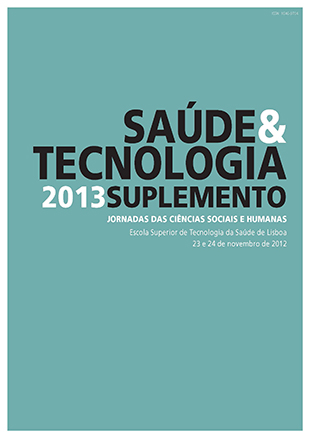The importance of a physical activity program for patients with multiple sclerosis on life satisfaction and psychological well-being
DOI:
https://doi.org/10.25758/set.904Keywords:
Life satisfaction, Psychological well being, Multiple sclerosisAbstract
Multiple sclerosis (MS) is a chronic disease of the central nervous system that affects more frequently young women. MS is a progressive disease and unpredictable, resulting in some cases, disability, and limitations in physical, psychological, and social. In this study, we investigate the effect of an intervention program to promote physical activity in individuals with MS on psychological well-being (BEP) and life satisfaction (SV). Methods – This is a quasi-experimental study. We use the scale of life satisfaction (7 items) and psychological well-being component inventory mental health (14 items). The study includes 24 patients with a mean age of 44, 58.3% are women, 37.5% are married, 67% are retired, with an education of 12.5 years, diagnosed at least 1 year. The program consists of an intervention to promote physical activity in a group of eight people, weekly, for 90 minutes, for seven weeks. To analyze the results we used SPSS version 20. Results – We used the Wilcoxon test for variables BEP and SV, obtained from the assessment before the intervention program and end of the program. We found that listening to significant changes between the two times p <0.01 in both variables, with higher results at the end of the intervention program. Discussion/Conclusions – Through reading the results we can see that the implementation of a program to promote physical activity in patients with MS, using a model in a holistic and integrated biopsychosocial perceptive improve SV and BEP in these patients.
Downloads
References
Compston A, Coles A. Multiple sclerosis. Lancet. 2002;359(9313):1221-31.
Multiple Sclerosis International Federation (MSIF) [homepage]. 2011 [cited 2011 Nov]. Available from: http://www.msif.org/language_choice
Grima DT, Torrance GW, Francis G, Rice G, Rosner AJ, Lafortune L. Cost and health related quality of life consequences of multiple sclerosis. Mult Scler. 2000;6(2):91-8.
Henze T. Managing specific symptoms in people with multiple sclerosis. Int MS J. 2005;12(2):60-8.
Kesselring J. Complications of multiple sclerosis: fatigue, spasticity, ataxia, pain, and bowel, bladder, and sexual dysfunction. In McDonald WI, Noseworthy J, editors. Multiple sclerosis 2. 2nd ed. New York: Elsevier; 2003. p. 217-302. ISBN 9780750673488
Chiaravalloti ND, DeLuca J. Cognitive impairment in multiple sclerosis. Lancet Neurol. 2008;7(12):1139-51.
Patti F, Leone C, D'Amico E. Treatment options of cognitive impairment in multiple sclerosis. Neurol Sci. 2010;31(Suppl 2):S265-9.
Barak Y, Achiron A. Happiness and neurological diseases. Expert Rev Neurother. 2009;9(4):445-59.
Pedro L. Implicações do otimismo, esperança e funcionalidade na qualidade de vida em indivíduos com esclerose múltipla. Lisboa: Colibri/Instituto Politécnico de Lisboa; 2010. ISBN 9789896890148
DeBolt LS, McCubbin JA. The effects of home-based resistance exercise on balance, power, and mobility in adults with multiple sclerosis. Arch Phys Med Rehabil. 2004;85(2):290-7.
Motl RW, McAuley E, Snook EM. Physical activity and multiple sclerosis: a meta-analysis. Mult Scler. 2005;11(4):459-63.
Rampello A, Franceschini M, Piepoli M, Antenucci R, Lenti G, Olivieri D, et al. Effect of aerobic training on walking capacity and maximal exercise tolerance in patients with multiple sclerosis: a randomized crossover controlled study. Phys Ther. 2007;87(5):545-55.
Stuifbergen AK, Blozis SA, Harrison TC, Becker HA. Exercise, functional limitations, and quality of life: a longitudinal study of persons with multiple sclerosis. Arch Phys Med Rehabil. 2006;87(7):935-43.
Mostert S, Kesselring J. Effects of a short-term exercise training program on aerobic fitness, fatigue, health perception and activity level of subjects with multiple sclerosis. Mult Scler. 2002;8(2):161-8.
Rasova K, Havrdova E, Brandejsky P, Zálisová M, Foubikova B, Martinkova P. Comparison of the influence of different rehabilitation programmes on clinical, spirometric and spiroergometric parameters in patients with multiple sclerosis. Mult Scler. 2006;12(2):227-34.
Shafizadeh M, Platt GK, Mohammadi B. Effects of different focus of attention rehabilitative training on gait performance in Multiple Sclerosis patients. J Bodyw Mov Ther. 2013;17(1):28-34.
Kurtzke JF. Rating neurologic impairment in multiple sclerosis: an expanded disability status scale (EDSS). Neurology. 1983;33(11):1444-52.
Pais-Ribeiro J, Cummins R. O bem-estar pessoal: estudo de validação da versão portuguesa da escala. In Leal I, Pais-Ribeiro J, Silva I, Marques S, editors. Actas do 7º Congresso Nacional de Psicologia da Saúde. Lisboa: ISPA; 2008. p. 505-8. ISBN 9789728400828
Ware JE Jr, Manning WG Jr, Duan N, Wells KB, Newhouse JP. Health status and the use of outpatient mental health services. Am Psychol. 1984;39(10):1090-100.
Pais-Ribeiro JL. Mental Health Inventory: um estudo de adaptação à população Portuguesa [Mental health inventory: adaptation study to the portuguese population]. Psicologia, Saúde & Doenças. 2001;2(1):77-99. Portuguese
Downloads
Published
Issue
Section
License
Copyright (c) 2022 Saúde e Tecnologia

This work is licensed under a Creative Commons Attribution-NonCommercial-NoDerivatives 4.0 International License.
The journal Saúde & Tecnologia offers immediate free access to its content, following the principle that making scientific knowledge available to the public free of charge provides greater worldwide democratization of knowledge.
The journal Saúde & Tecnologia does not charge authors any submission or article processing charges (APC).
All content is licensed under a Creative Commons CC-BY-NC-ND license. Authors have the right to: reproduce their work in physical or digital form for personal, professional, or teaching use, but not for commercial use (including the sale of the right to access the article); deposit on their website, that of their institution or in a repository an exact copy in electronic format of the article published by Saúde & Tecnologia, provided that reference is made to its publication in Saúde & Tecnologia and its content (including symbols identifying the journal) is not altered; publish in a book of which they are authors or editors the total or partial content of the manuscript, provided that reference is made to its publication in Saúde & Tecnologia.







